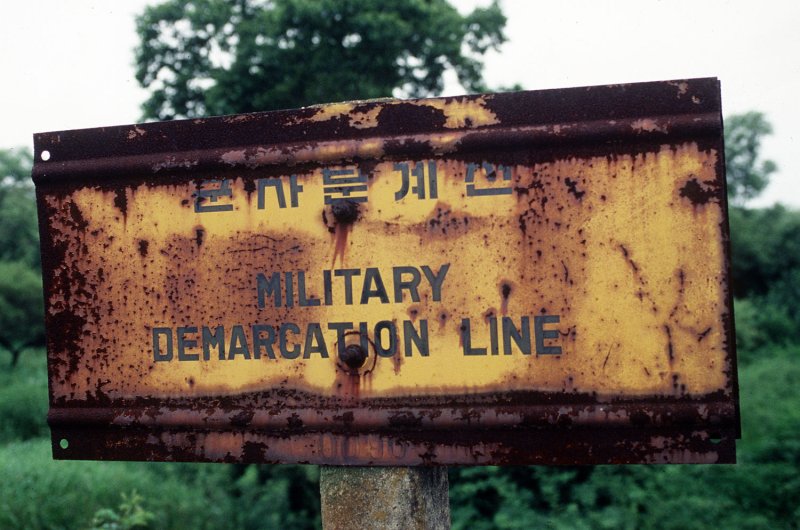1 of 3 | This undated Department of Defense photo shows a sign in the Demarcation Line (MDL) separating North and South Korea. On Monday, May 25, 2009 North Korea allegedly detonated a nuclear device during an underground test and test fired several short range missile. North Korea announced that it has restarted its nuclear weapons research program. (UPI Photo/Scott Stewart/USAF) |
License Photo
WASHINGTON, May 28 (UPI) -- U.S. and U.N. officials have expressed concern about North Korea's ability and need to smuggle weapons of mass destruction around the world.
Concerns about North Korean weapons proliferation rose after the isolated Communist country's nuclear weapon test Monday and the firings of short-range missiles the next day, The Wall Street Journal reported Thursday
North Korea's arms trade has focused on Iran and Syria, which the United States views as state sponsors of terrorism, as well as Libya, the Journal said. Officials said North Korean arms have were sold to U.S. allies, such as Egypt and Pakistan, and to the military junta in Myanmar, formerly known as Burma.
Sales of short- and medium-range missile systems are among North Korea's largest exports, part of an arms trade generating $1.5 billion annually, North Korea analysts said.
While the international community looks to punish North Korea for the nuclear test, U.S. and U.N. officials say they're concerned Pyongyang could try to boost exports of its nuclear and missile technologies as it loses its ability to get currency from foreign aid and exports to markets such as Japan and South Korea.
"The concern is not just that they have a nuclear weapon; it's what they're going to do with the technology and where it's going to go," a senior U.S. defense official told the Journal.
Since the nuclear test, President Barack Obama, Secretary of State Hillary Clinton and national security adviser James Jones have voiced concerns about the threat posed by Pyongyang's proliferation activities.
"How do you consistently detect North Korea's proliferation activities and stop it? It's very hard," said David Albright, a former U.N. weapons inspector now head of the Institute for Science and International Security, a Washington think tank.















